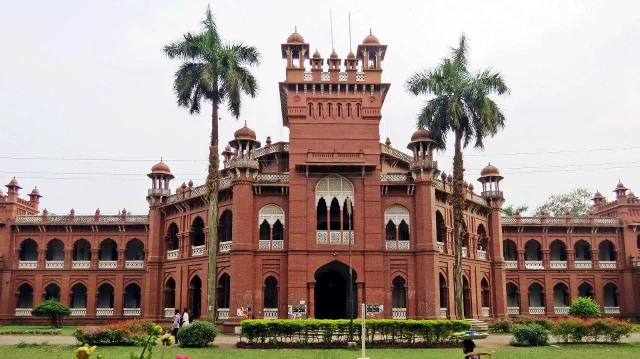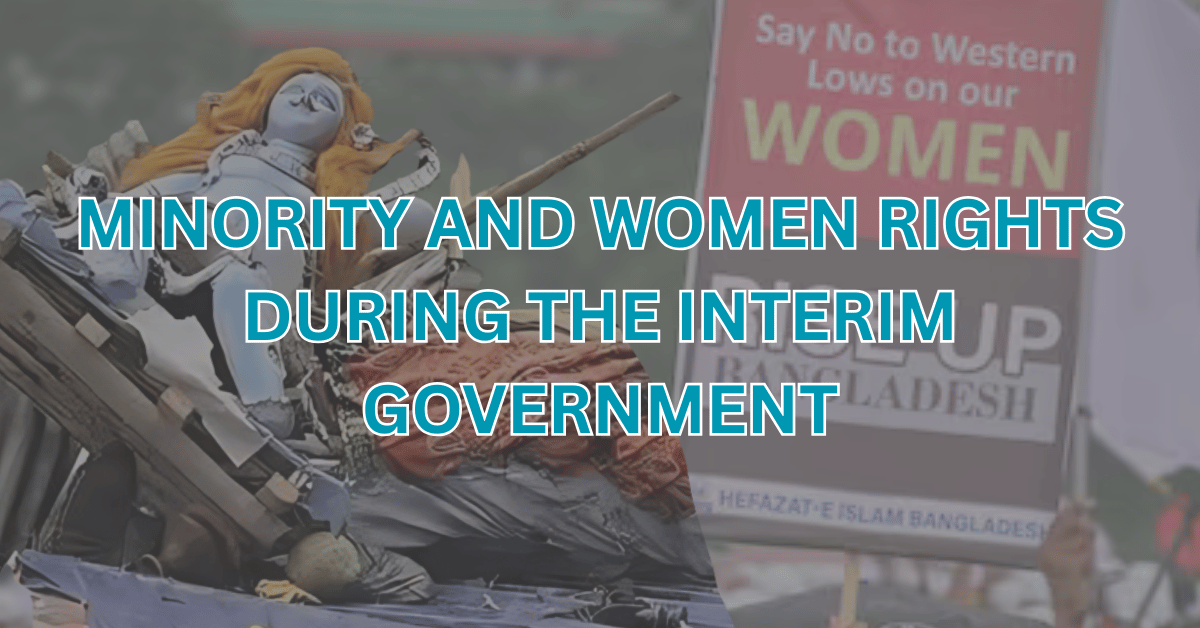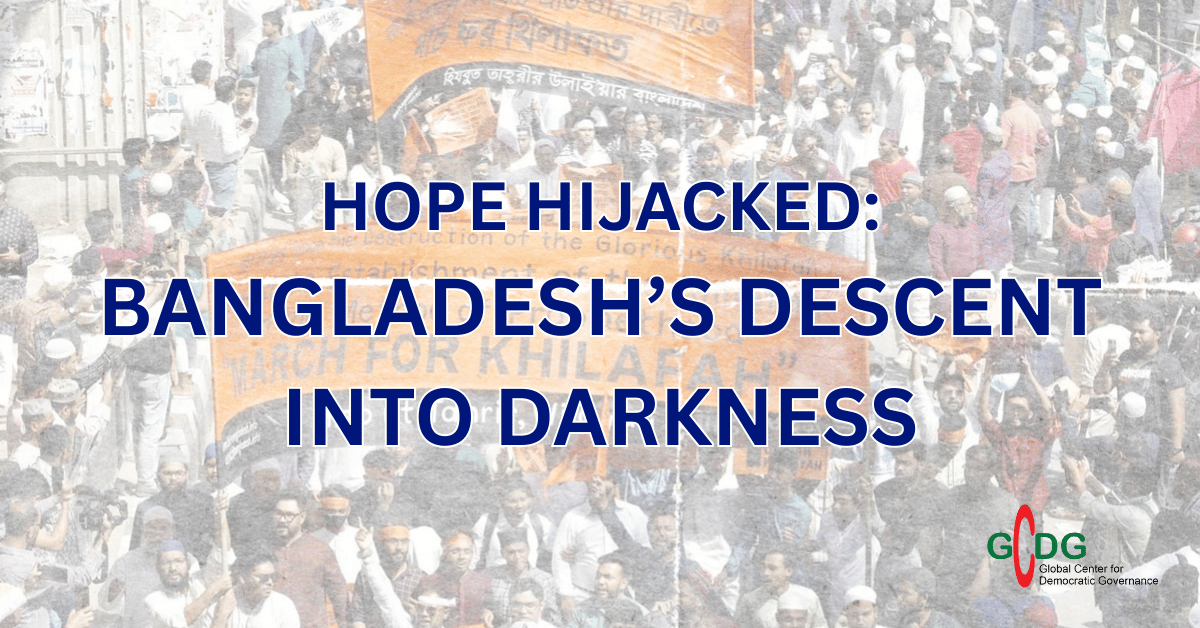The interim government’s ban on Bangladesh’s largest political party undermines democracy, empowers extremists, and threatens…

Self-Governance and National Progress: Revisiting the University Act of 1973 and BAKSAL’s Local Autonomy Vision
The Context of Autonomy in Bangabandhu’s Thought
In the aftermath of Bangladesh’s Liberation War, the new state faced not only the monumental task of physical reconstruction but also the deeper challenge of shaping democratic institutions that would reflect the values for which the nation had fought. For Bangabandhu Sheikh Mujibur Rahman, freedom was never confined to the removal of colonial or military rulers; it was equally about dismantling the inherited structures of centralized control that stifled initiative, creativity, and self-reliance. As Bangabandhu himself declared in his electrifying 7th March 1971 address:
The struggle this time is a struggle for our liberty. The struggle this time is a struggle for our independence.’ This was not just a call for national sovereignty, but a foundational belief that autonomy—whether intellectual or civic—is the truest form of freedom.
Central to this vision was the idea of autonomy—not as an abstract slogan, but as a practical framework for empowering people and institutions to govern themselves. This autonomy had two interconnected dimensions:
- Intellectual autonomy, to be protected and nurtured in the country’s universities through the University Act of 1973.
- Political and economic autonomy at the grassroots, to be realized through a constitutionally empowered local government system under the BAKSAL reform program in 1975.
The University Act of 1973: Autonomy for Intellectuals
Bangladesh’s universities in the Pakistan era had been subjected to tight bureaucratic control, with the central government exerting decisive influence over appointments, budgets, and even permissible topics of research. This control was often used to suppress dissent and curtail progressive thought, making universities more vulnerable to political victimization than to intellectual flourishing.
In 1973, Bangabandhu’s government enacted the University Act, a landmark piece of legislation intended to insulate higher education from direct political or bureaucratic interference.
The ‘struggle… for our liberty’ he spoke of extended beyond the battlefield—it was a promise that universities would be nurtured as autonomous spaces of free thought, protected by instruments like the University Act of 1973.
Key Features of the Act
- Self-governance: Universities would be administered by syndicates, senates, and academic councils, composed mainly of academics rather than political appointees.
- Appointment of leadership: While the President remained the formal Chancellor, the selection of vice-chancellors and key academic officials was designed to involve significant input from within the university community.
- Academic freedom: The Act safeguarded the right to determine curricula, research priorities, and institutional policies without ministerial diktat.
- Financial independence: Universities could prepare their budgets and allocate resources according to academic needs rather than central bureaucratic priorities.
Philosophical Underpinning
Bangabandhu envisioned universities as “nurseries of leadership”—places where free thought, open debate, and academic rigour would produce leaders capable of guiding the nation. In his political philosophy, intellectual autonomy was inseparable from national progress; without free thinkers, the democratic process itself would be impoverished.
Impact and Erosion
Initially, the Act inspired optimism among academics and students, signalling a break from the past. However, subsequent political instability and changes in governance began to erode the autonomy it promised. Political interference in appointments and funding gradually undermined the Act’s original spirit—a pattern that still sparks debate in Bangladesh’s academic circles today.
Autonomous Local Government: BAKSAL’s Vision
While universities were to be the centres of intellectual self-governance, Bangabandhu also sought to decentralize political and economic power. The local government system inherited from Pakistan was highly centralized, with limited authority for elected local bodies and significant control retained by appointed bureaucrats.
In early 1975, under the framework of BAKSAL (Bangladesh Krishak Sramik Awami League), Bangabandhu announced an ambitious program to restructure local governance as a four-tier elected system.
Just as Bangabandhu articulated in his stirring speech about ‘liberty’ and ‘independence,’ BAKSAL’s reforms aimed to bring that same spirit to the grass roots—translating autonomy from the realm of ideas to the livelihoods of people.
The Four-Tier Plan
- Union Parishad – the primary decision-making body for rural development, justice, and resource allocation.
- Thana (now Upazila) Parishad – coordinating local development across unions.
- District Parishad – ensuring larger-scale planning and integration of development initiatives.
- National Level – where local representatives could feed directly into national policy-making.
The plan sought to empower local governments constitutionally, turning them from administrative units of the central government into self-governing bodies with budgetary control, development authority, and legal standing.
Integration with Intellectual Autonomy
Bangabandhu’s vision of grassroots political autonomy complemented his reforms in higher education. Both aimed to reduce dependence on central patronage, replacing it with institutional independence—in one case for scholars, in the other for citizens.
Intellectual and Political Autonomy: Two Pillars of Democratic Nation-Building
The 1973 University Act and the 1975 BAKSAL local government reforms were not isolated initiatives; they were complementary pillars of a broader democratic architecture. Intellectual autonomy was meant to safeguard the freedom of thought, enabling the production of ideas and leadership for national development. Political and economic autonomy at the local level was designed to ensure freedom of action, allowing the citizens to shape their destinies.
This two-pronged approach reflected Bangabandhu’s belief that self-governance was not only a matter of electoral democracy but also of institutional independence and social participation.
The Unfinished Vision and Its Relevance Today
The assassination of Bangabandhu in August 1975 brought both initiatives to an abrupt halt. The BAKSAL local government plan was abandoned, and university autonomy gradually weakened under successive regimes. Although the 1973 University Act remains in effect on paper, political appointments, funding constraints, and partisan influences have eroded its effectiveness. Local government, though nominally elected, often remains subordinate to central ministries and dependent on bureaucratic discretion.
Yet, the relevance of Bangabandhu’s vision endures. At a time when debates about decentralization, academic freedom, and participatory democracy are once again prominent, his approach offers a framework for reform that is both historically grounded and forward-looking.
Conclusion
Bangabandhu Sheikh Mujibur Rahman’s concept of autonomy—whether in the halls of universities or the villages of Bangladesh—was rooted in a simple yet transformative idea: self-governance is the foundation of national progress. The University Act of 1973 sought to protect the independence of the intellect, while the BAKSAL local government program aimed to place political power directly in the hands of the people.
If the University Act of 1973 and the BAKSAL program were incomplete acts of autonomy, the 7 March quote reminds us why the vision still matters: ‘liberty’ and ‘independence’ must be rooted in both our institutions and our communities.
Although history interrupted these initiatives, the principles they embodied remain vital. Reclaiming and modernizing Bangabandhu’s vision could be key to building a Bangladesh where thinkers are free, communities are empowered, and democracy is deeply rooted in both mind and soil.




Comments (0)